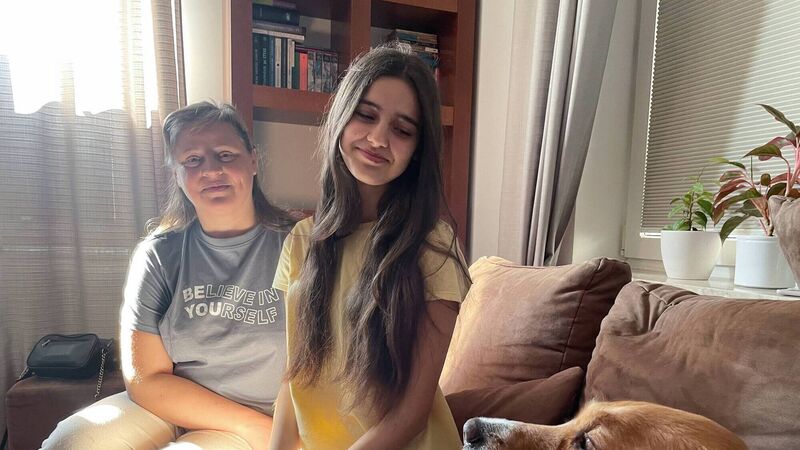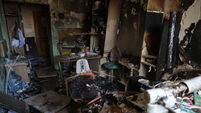The Dubliner helping Ukrainians flee to Ireland to escape war

Nadiia, her niece Yana, and golden retriever Fella at Ciaran Murphy's apartment in Warsaw
It is a busy day for Ciaran Murphy, a native of Swords, Co Dublin. It started with cooking breakfast for his guests, a family of refugees from Ukraine — Nadiia, her daughter (who wished to remain anonymous) and her niece Yana.
Later that day, he would drive out to Modlin airport, about an hour away from Warsaw, to pick up another Ukrainian family who needed transportation back into Warsaw. Only to be back to the airport again in the evening to drive Nadiia and the girls to catch their Ryanair flight to Shannon.














